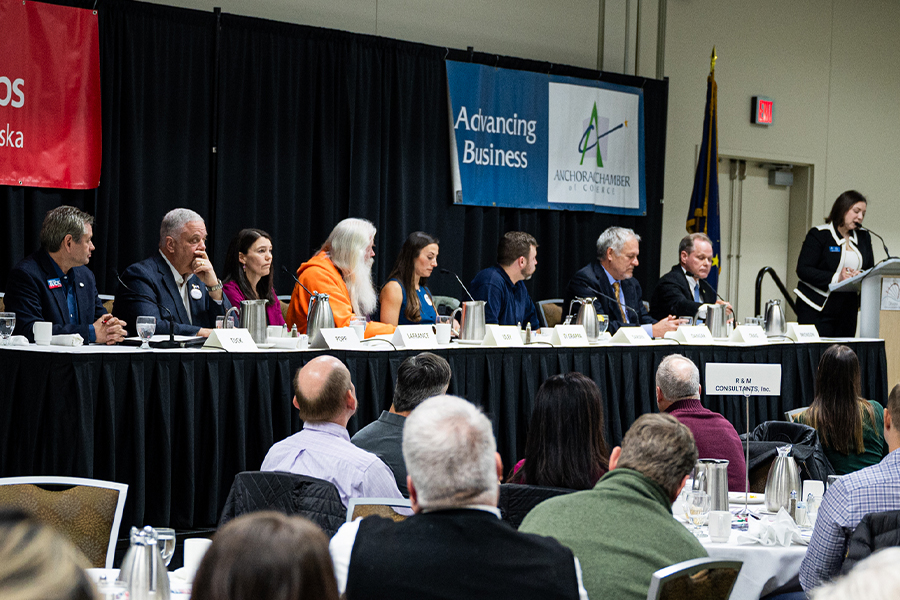
Candidates running for Anchorage mayor shared their views on instituting a sales tax and how to improve delivery of basic city services at a debate Monday.
The four candidates who have mounted the biggest campaigns are incumbent Dave Bronson, former Assembly Chair Suzanne LaFrance, former state Rep. Chris Tuck, and former economic development leader Bill Popp.
Popp, a former member of Alaska Public Media’s board, left the Anchorage Economic Development Corp. last fall to run for mayor. Earlier this year, the nonprofit announced a campaign for a city sales tax, which Popp helped develop.
AEDC is interested in a 3% sales tax, with two-thirds of the revenue dedicated to property tax relief and one-third for major public projects.
Popp was the most supportive.
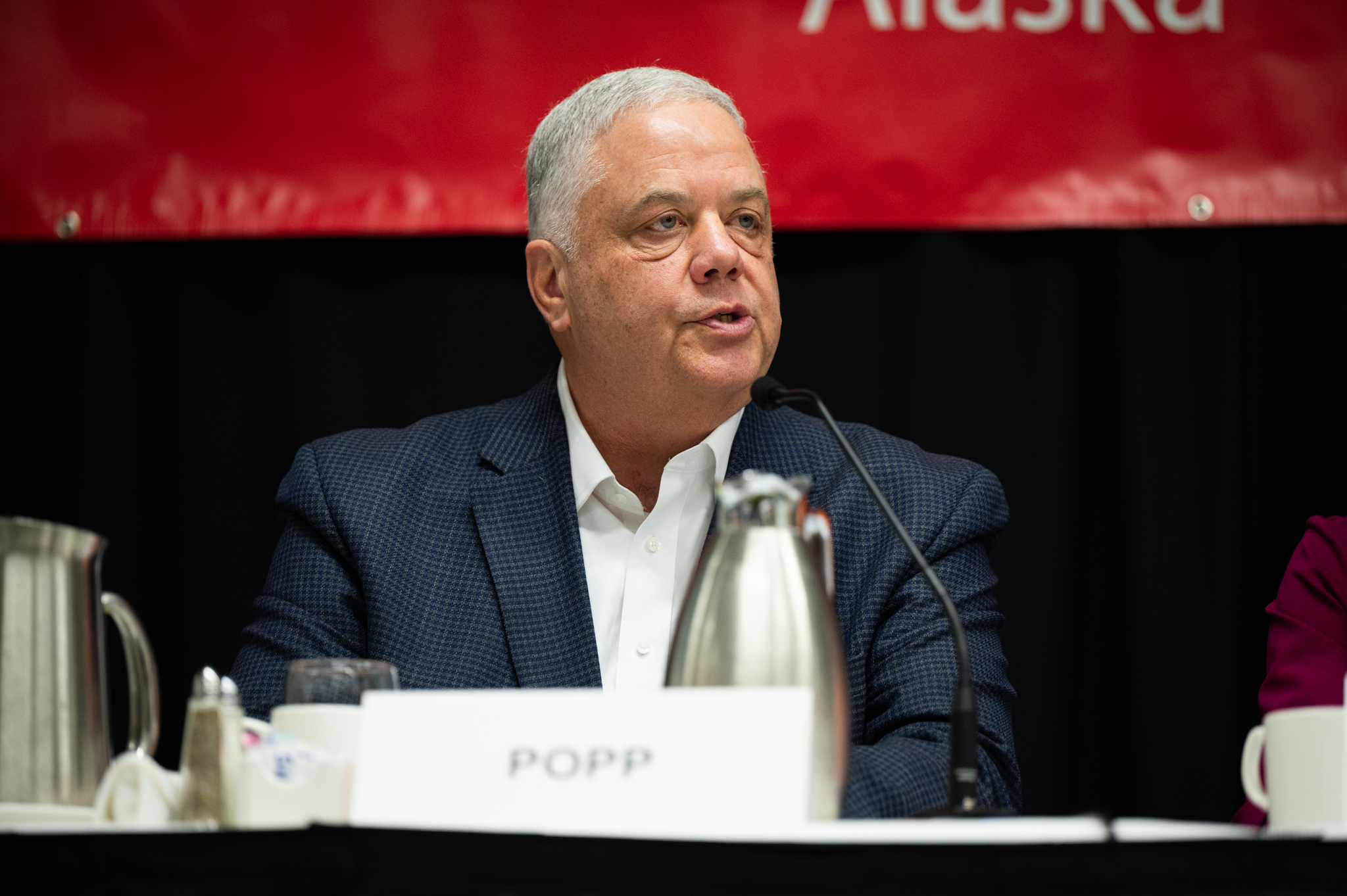
“How would you like a 25% reduction on the property taxes on your house for a 2% sales tax?” Popp said. “There are other benefits that could come from this. And a year-round sales tax with almost 20% of it being paid by people who don’t live in Anchorage is a tax break for citizens.”
He said it’s worth a long community conversation before asking voters to decide.
Bronson, LaFrance and Tuck were hesitant.
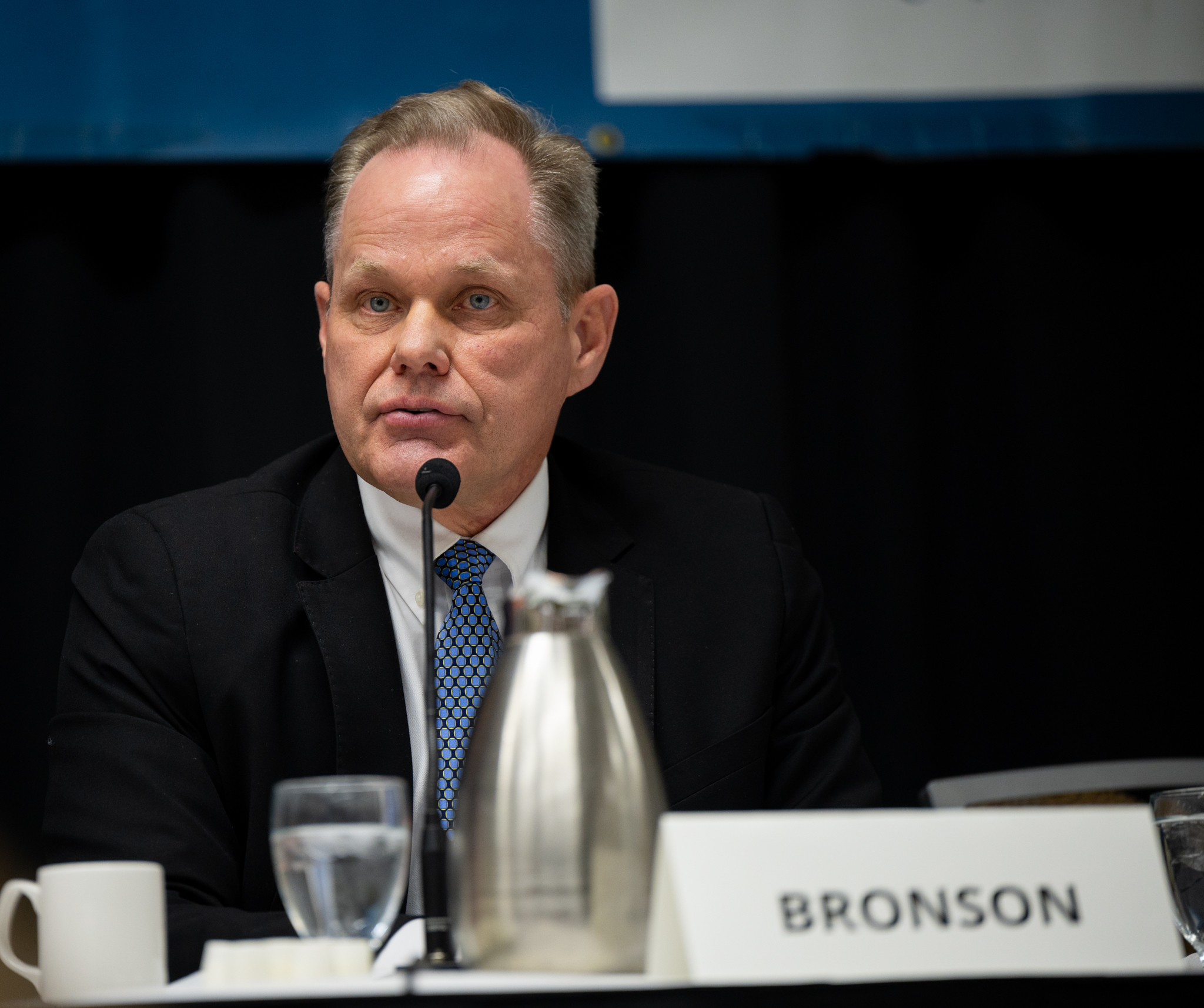
“Spending is the challenge,” Bronson said. “I could support a seasonal sales tax – if it guaranteed dollar-for-dollar reduction in property tax.”
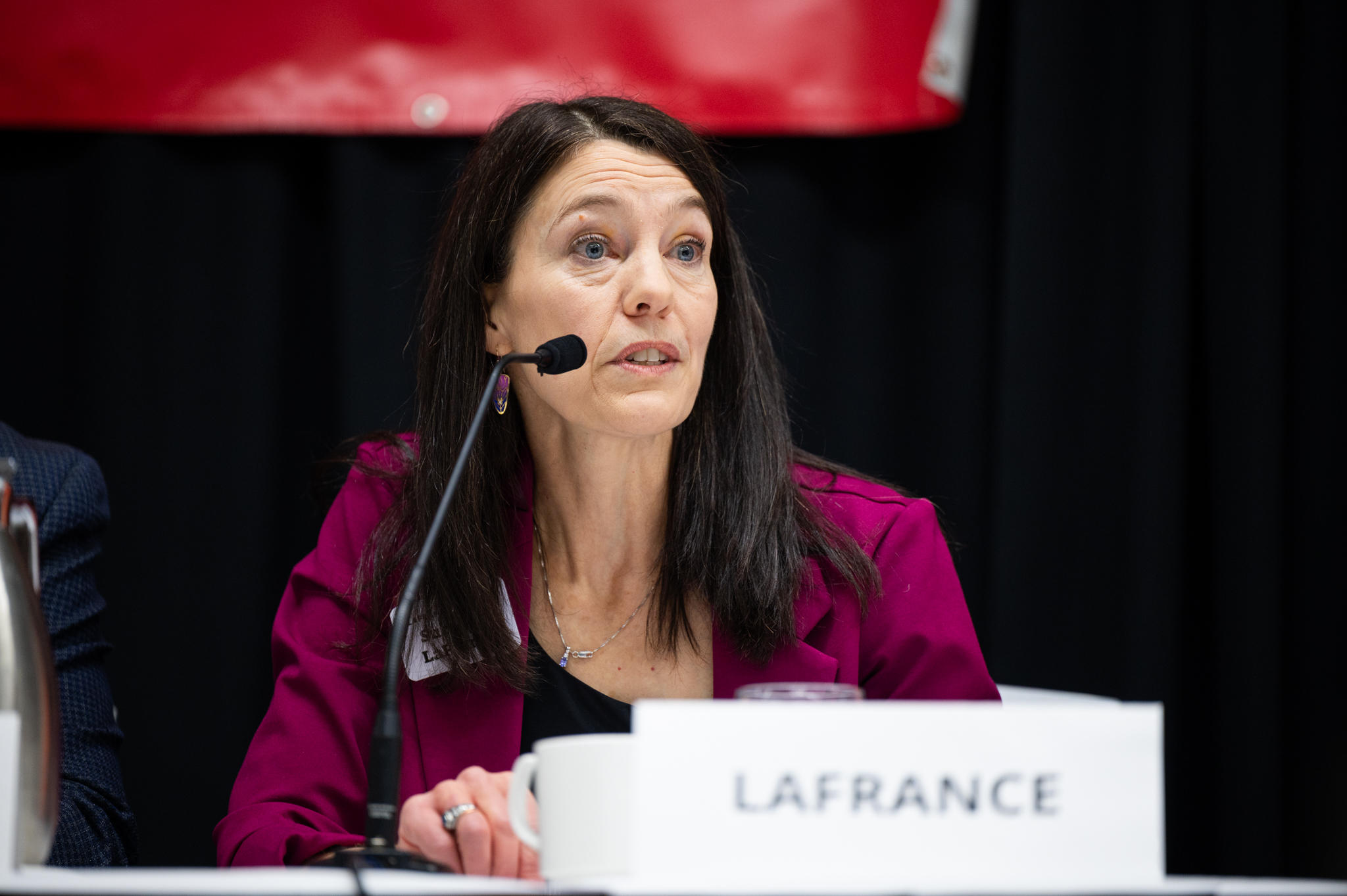
“It’ll depend on how it’s structured,” LaFrance said. “And as mayor, I’ll look very carefully at any proposals going forward. … At end of day, it’ll be up to the taxpayers to decide.”
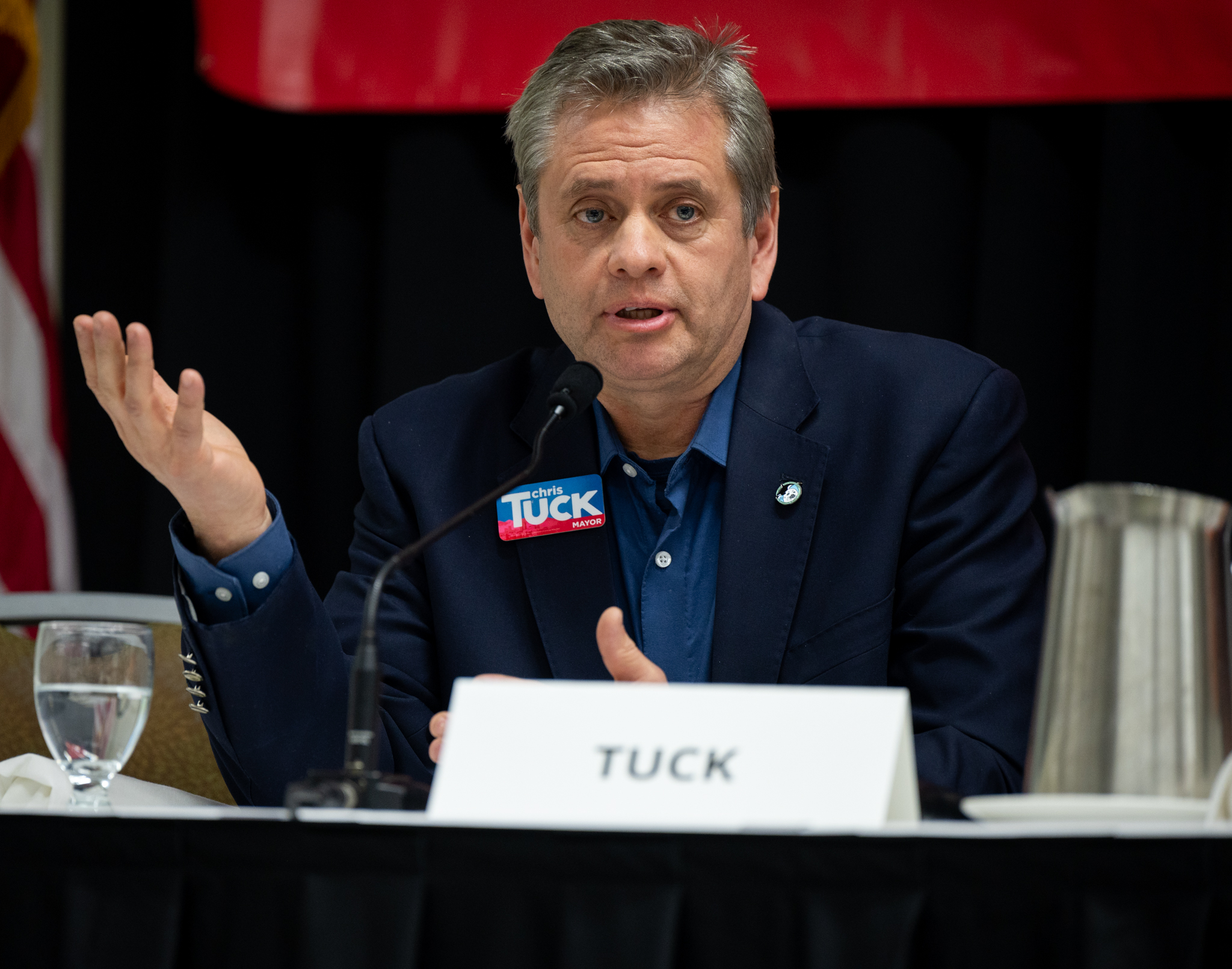
“It’s gonna be hard to ask people to reach back into their pockets when we’re not as efficient as we should be,” Tuck said. “If we need to go in that direction, we just do a seasonal sales tax first.”
The debate was held by the Anchorage Chamber of Commerce. The moderator asked for a show of hands in the audience if they supported some form of a city sales tax. Perhaps a third of the business-oriented crowd raised their hands.
The candidates were also asked how they’d improve essential city services like snow removal, public transportation and permitting. The challengers all focused on workforce issues and staffing shortages within city government.
“We’re all experiencing what understaffing in the municipality has done to delivery of basic services to our community,” said LaFrance, whose fundraising has so far outpaced all other candidates. “Whether that’s snow removal, reduced public health services, or longer times for permitting. It starts with the basics. It starts with, as mayor, I will employ and appoint competent individuals and I will create a culture of respect and accountability. Because it starts from the top.”
LaFrance said that also means competitive wages and possibly creating a pension system.
Popp said the city has to compete for workers within Anchorage, across the state and beyond.
“It’s all about the people,” he said. “If you can’t staff municipal departments, you can have the best laid plans in the world, the most lofty goals you can possibly talk about and utterly fail. Because you don’t have the people to do the work that needs to get done to accomplish those goals and get where you want to be. …We’ve got to get our act together when it comes to workforce.”
Tuck answered from his perspective as an electrician.
“I know from being a contractor that you can’t take care of your customers unless you take care of your employees first,” he said. “You can’t take care of government services unless you take care of employees first.”
The incumbent Mayor Bronson was defensive.
“If there’s anyone here who does not have a challenge fully staffing their businesses, please raise your hand,” he said. “Because I know of no one who does not have a problem staffing their positions, all their positions.”
Ballots for the Anchorage municipal election will be mailed. Voting opens March 12 and closes April 2.
Jeremy Hsieh covers Anchorage with an emphasis on housing, homelessness, infrastructure and development. Reach him atjhsieh@alaskapublic.orgor 907-550-8428. Read more about Jeremyhere.





